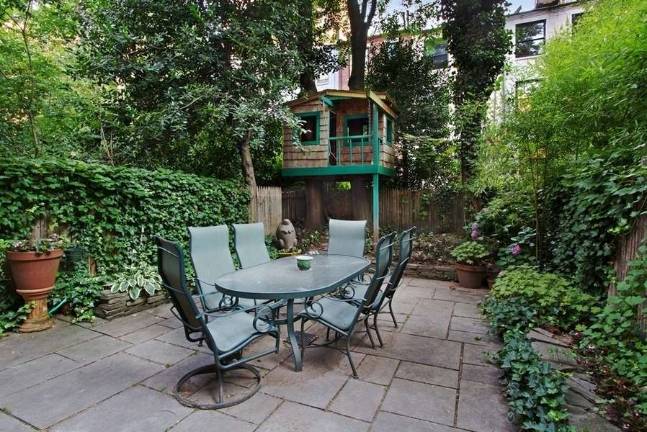Tax Incentive Could Make UWS Greener

A new bill would give building owners a tax credit for converting their concrete backyards into green space During major storms like hurricane Sandy, New York City is an easy target for flooding, because the area of impermeable surfaces, like concrete and asphalt, outweigh permeable surfaces, like grass, throughout the city. As a result, after a large storm, according to the Department of Environmental Conservation, raw sewage runs off into the Hudson River. To prevent that, a bill, authored by Assembly Member Linda Rosenthal, is currently in the New York Senate for a green space tax abatement for building owners. In the agreement, the owners will receive $4.50 per square foot of concrete that is converted into green space. ?The new bill, currently in the New York Senate, was started on the Upper West Side, and was approved by Upper West Side community members like City Council candidate Mel Wymore and the West End Preservation Society. On the Upper West Side, old brownstones are known for their "doughnut" backyards. According to Rosenthal, this bill would be an incentive for building owners to stop paving over backyards. In fact the bill was unanimously supported by Community Board 7. ? "If I walk around the back of my building, everything is concrete. It would smell nicer and ?be more aesthetically pleasing, at the very least if it were green," said Linda Rosenthal. ?But this issue would not just be helpful for the Upper West Side, according to the bill's supporters. ?"One of the interesting things about New York is that these rowhouse backyards are all over the place in different areas in the city," said Evan Mason of Sustainable Yards NYC, an initiative trying to claim back urban green spaces. "If people were to remove these concrete spaces, there could be real change." ?According to Mason, there are 53,000 acres of open space in New York City. There are multiple ways that more greenery could affect the city. One, she said would be the immediate impact on sewage runoff during major storms. Mason said that this would save the city money by burdening the water treatment center less. During a large storm with mostly rain like Tropical Storm Irene, rain can seep into the permeable ground causing less runoff. However, storms like Hurricane Sandy with more flooding from storm surge than rain, would probably not affect the storm run-off. ?But in addition to helping the city out during a rainstorm, Sustainable Yards argues that more green space can also improve quality of life. Evan Mason explained that it is a no-brainer: when more trees and vegetation are planted, the air becomes cleaner, and an urban setting becomes more livable. ?"People like the idea of turning the hands of time and reducing the 'concrete creep' and this isn't as difficult to manage as other sustainability measures," said Mason. ?This tax abatement is also very similar to the fairly new tax abatement which offers incentive for green roofs. ?"It seems like there's not a lot of emphasis on trying to greenify backyards. We are trying to encourage people to plant trees, and use small flagstones as their concrete space," said Jay Adolf, a Community Board 7 member. ?Linda Rosenthal said that the bill has to go through a committee first, before it can go to the floor, and it will hopefully be passed later this year.